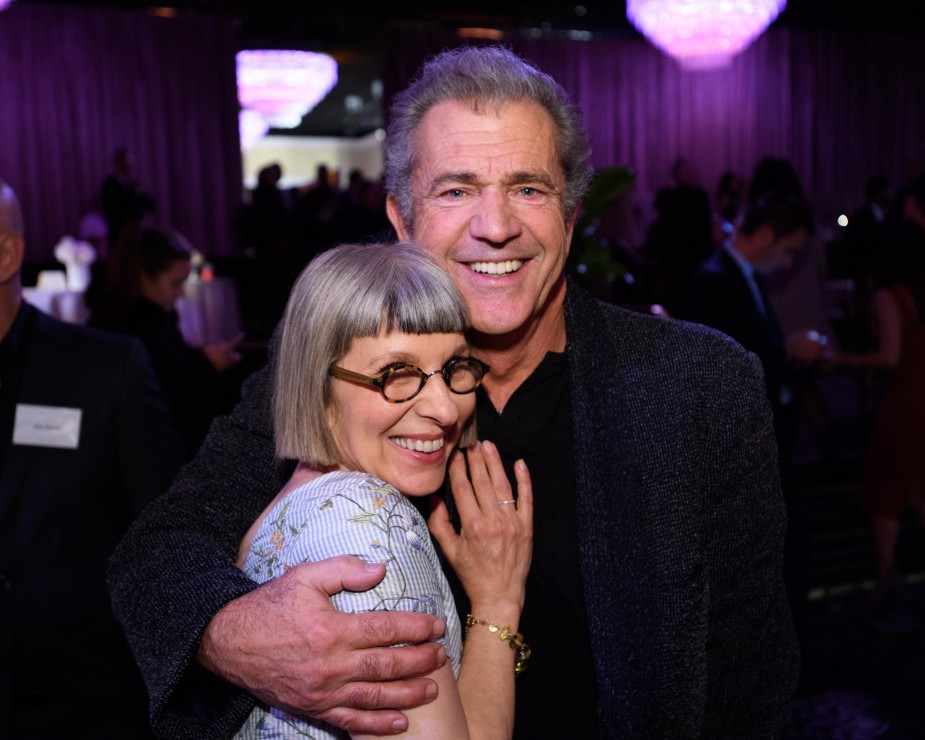
It would seem Hollywood — and filmgoers in general — are ready to forgive Mel Gibson for anti-Semitic and homophobic remarks, but should they be? Photo credit: Academy of Motion Pictures Arts and Sciences via oscars.org
At the 2017 Film Independent Spirit Awards, host Nick Kroll quipped, “People wondered, ‘How long would it take Hollywood to forgive someone for anti-Semitic, racist hate speech?’ The answer? Eight years.”
He was referring, of course, to Mel Gibson. The actor and director’s personal life has long been mired in scandal; infamous for his vicious anti-Semitic and homophobic remarks, as well as leaked voicemails in 2010 revealing a violent, profanity-laced tirade against then-wife Oksana Grigorieva. Although his repugnant actions resulted in a decade-long Hollywood blacklist, he appears to be making a comeback with his critically-acclaimed 2016 film Hacksaw Ridge which landed him an Oscar nomination for Best Director. Many have been critical of Hollywood’s short-term memory and willingness to forgive — if the offender is a powerful white man, that is.
Gibson wasn’t the only polarizing figure at the Oscars. Although the ceremony took place over a month ago, the Academy’s decision to award Casey Affleck, who has been accused on two occasions of sexual harassment during the filming of I’m Still Here in 2010, with Best Actor remains controversial. The allegations date back seven years, but recently resurfaced with the praise surrounding Manchester by the Sea.
His victory at the Oscars sparked outrage, renewing the debate over Hollywood’s troubling history of sexual abuse. Fresh Off the Boat actress Constance Wu criticized Affleck over Twitter, writing, “[Affleck] is running for an award that honors a craft whose purpose is examining the dignity of the human experience & young women are deeply human.”
Actress Brie Larson, whose role as an abused mother in Room in 2015 received critical acclaim, has also spoken out against Affleck. In a highly publicized move as presenter of the Best Actor award, Larson stood to the side and chose not to applaud as Affleck accepted his Oscar.
“I think that whatever it was that I did onstage kind of spoke for itself,” Larson told Vanity Fair when asked about her reaction. “I’ve said all that I need to say about that topic.”
While the list of problematic Hollywood figures goes on and on, there’s no debating the excellent body of work that these men have created. Yet the allegations made against them cannot be forgotten. In light of the accusations levelled against Woody Allen by his former stepdaughter, it’s hard not to cringe seeing him in a romantic relationship with 17-year-old Mariel Hemingway in Manhattan; likewise, the lovable patriarch Cliff Huxtable is forever tainted by Bill Cosby’s reprehensible alleged actions towards women.
Ultimately, the extent to which a problematic artist’s work can be appreciated depends on the individual consumer. Some are fine with the knowledge that Casey Affleck will profit from their movie ticket purchase, while others might not be able to stomach the thought. Either way, it’s crucial to be aware of these accusations and problematic histories, whether or not they contextualize the individuals’ art works.
If the Academy wants to avoid negative reactions from the public, they should consider implementing stricter regulations as to who is honoured. If a film is award-worthy, honour it. But we should try and avoid recognizing problematic individuals attached to the production, or at least avoid giving them individual or overt recognition, if at all possible. And it’s not just the Oscars — Hollywood in its entirety should be more vigilant and aware of the culture it could be propagating and encouraging.
But the onus is also on society more generally. If people want to see the Academy and Hollywood change for the better, then they have to remember the power of viewership. Watching the Oscars and going to movies starring actors who have been accused of sexual abuse just proves to the industry that the common viewer does not care about these issues. For a real shift away from this so far accepted patriarchal culture, viewers need to be more selective about how they spend their money and time.






